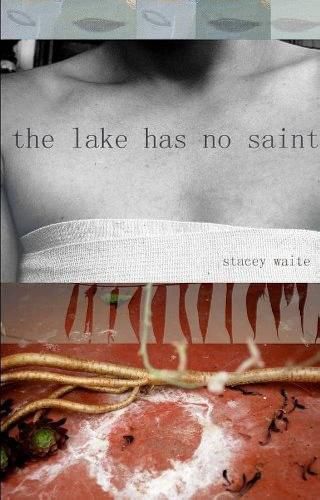Readings Newsletter
Become a Readings Member to make your shopping experience even easier.
Sign in or sign up for free!
You’re not far away from qualifying for FREE standard shipping within Australia
You’ve qualified for FREE standard shipping within Australia
The cart is loading…






Poetry. LGBT Studies. Winner of Tupelo Press’s Snowbound Chapbook Award selected by Dana Levin. Stacey Waite’s THE LAKE HAS NO SAINT is a study in grief–a work of poetic archaeology that traces the artifacts of the past into the relationships of the present. Embedded in a powerfully modulated sequence addressing a you who shifts in location and identity, many of these poems feel like forms of request, imploring. The speaker’s androgynous self-awareness–and wary attention to the gendered assumptions elicited by bodies–disclose in each poem a recognizable but disorienting (and pressurized) situation. THE LAKE HAS NO SAINT will unsettle a reader’s sense of the certainty and stability of gender, as grammar and phrasing are also disrupted and blurred, often requiring us to read closely to hear where one sentence ends as another begins. Yet despite its formal and thematic iconoclasm, this is a book that clearly elucidates a story both heart-rending and ultimately–in its vatic honesty–triumphant.
$9.00 standard shipping within Australia
FREE standard shipping within Australia for orders over $100.00
Express & International shipping calculated at checkout
Poetry. LGBT Studies. Winner of Tupelo Press’s Snowbound Chapbook Award selected by Dana Levin. Stacey Waite’s THE LAKE HAS NO SAINT is a study in grief–a work of poetic archaeology that traces the artifacts of the past into the relationships of the present. Embedded in a powerfully modulated sequence addressing a you who shifts in location and identity, many of these poems feel like forms of request, imploring. The speaker’s androgynous self-awareness–and wary attention to the gendered assumptions elicited by bodies–disclose in each poem a recognizable but disorienting (and pressurized) situation. THE LAKE HAS NO SAINT will unsettle a reader’s sense of the certainty and stability of gender, as grammar and phrasing are also disrupted and blurred, often requiring us to read closely to hear where one sentence ends as another begins. Yet despite its formal and thematic iconoclasm, this is a book that clearly elucidates a story both heart-rending and ultimately–in its vatic honesty–triumphant.